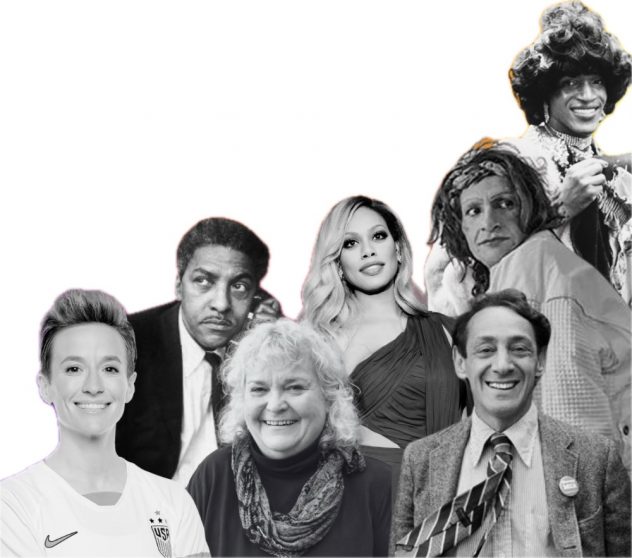This piece is syndicated from “Destination: Unknown” an external blog not associated with Stonewall Columbus.
October is a time when we as a community pause to remember the countless individuals who’ve made indelible marks on the world as queer people. LGBTQ+ History Month is more than a mere celebration of the past; it is a living testament to the resilience, courage, and tenacity that has brought us to where we are today. It is a reminder that our histories are not just stories of pain and struggle but narratives rich with triumph, love, joy, and hope.
I can’t help but reflect on the shoulders we stand upon. From the relentless activism of figures like Marsha P. Johnson and Sylvia Rivera, who bravely stood at the fore of the Stonewall uprising, to the political prowess of Bayard Rustin, whose strategic brilliance helped shape the civil rights movement, our community has always been at the vanguard of change.
Yet, what strikes me most about queer history is its dynamism. Queer history is not a static collection of names, dates, and milestones locked away in textbooks–they literally fight to not allow it. It’s living and breathing in every act of resistance, every expression of joy, every claim to visibility that challenges the status quo. It’s a history that’s evolving daily, as young LGBTQ+ activists across the globe continue to fight for justice, equality, and the right to live authentically.
For me, LGBTQ+ History Month is also deeply personal. It’s an opportunity to reflect on my own journey—a Black, queer person born in Jamaica, raised in Brooklyn, and coming of age in Atlanta. Jewish, yet raised in a Pentecostal faith. A first-generation college student. A parent. The intersectionality of my identity is a testament to the complexity of our community’s history and its bright future. There were—and still are—countless spaces where I’ve had to reconcile my different identities, often standing at the intersection of multiple struggles. But it’s in these spaces that I’ve also found the most profound forms of connection, solidarity, and community.
Growing up, I was often acutely aware of the absence of narratives that reflected my experiences. The stories I needed—those of queer Black men, immigrants, and others whose existence challenges singular narratives of identity—were often missing from the mainstream. It wasn’t until much later in life, when I delved deeper into our community’s archives, that I began to see myself reflected in the past.
And that’s why this month is so vital. By celebrating queer history, we illuminate the stories that have been left out or silenced. We honor not just the “Harvey Milks” and “Audre Lordes” of our community, but also the countless everyday people whose acts of resistance—whether visible or invisible—paved the way for a more inclusive world. It’s about remembering those whose names we’ll never know, who fought quietly in their own ways for the freedoms we enjoy today.
However, we are also reminded that our work is far from over. As I write this, anti-LGBTQ+ legislation is spreading across the country, putting the safety and rights of our most vulnerable community members at risk. We are reminded daily that the progress we’ve made can never be taken for granted. Queer history month isn’t just a commemoration of what’s been; it’s a glimmer of the possibilities for what’s still to come.
In celebrating our past, we must also ask ourselves: How are we shaping our future? How are we honoring the legacy of those who came before us? How are we ensuring that future generations won’t face the same struggles we’ve had to endure?
The answer, I believe, lies in our continued commitment to community-building, advocacy, and education. We must continue to raise awareness about the issues facing LGBTQ+ people, from racial and economic justice to healthcare access and family rights. We must continue to fight for full equality—not just in legal terms but in the everyday lived experiences of queer people across the globe.
I think we should carry our history with us, not as a burden but as a source of strength. We must acknowledge that the fight for equality is long, but it is not without hope. And we must commit to ensuring that, one day, every queer person will be able to look back on our shared history with pride and say, “We did that. We made it better.”
Densil Porteous, is a seasoned leader and advocate for humanity. With a multifaceted background in entrepreneurship, higher education administration, strategic marketing, development/fundraising, venture, and social impact, Porteous offers a unique perspective on a variety of topics and he shares insights on his blog, “Think Higher. Feel Deeper. – Destination: Unknown”.




